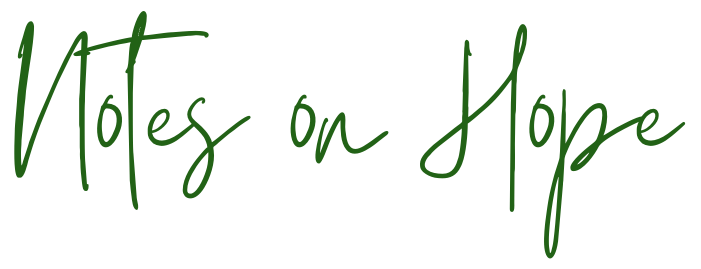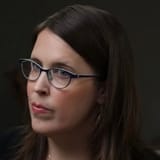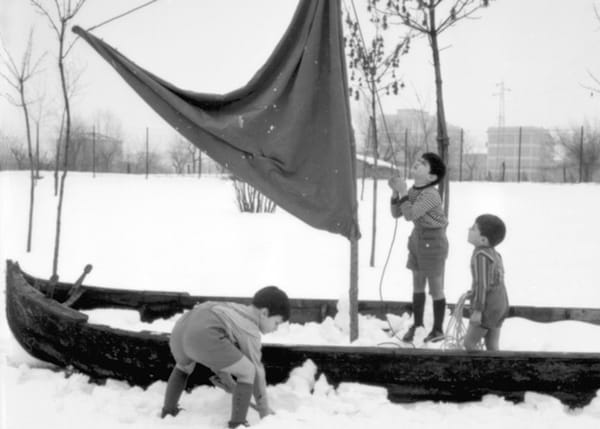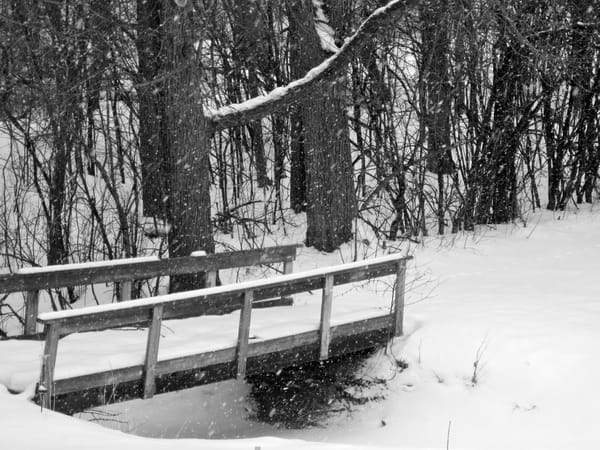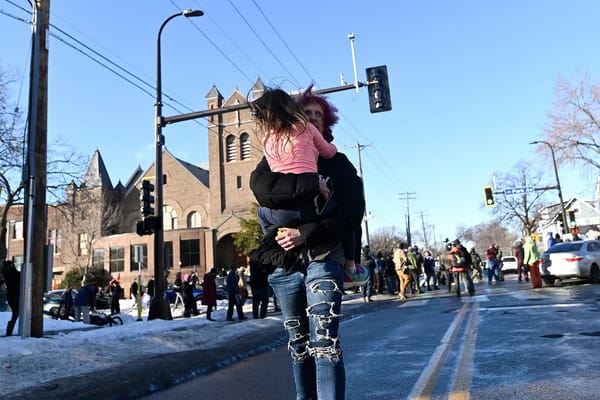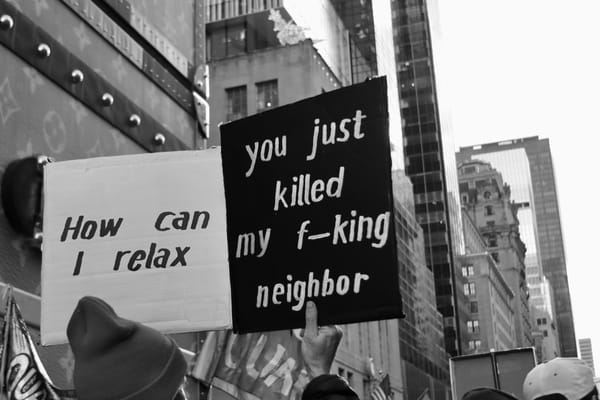We Could Be A Million Points of Light
Finding the courage to use your small, wavering voice
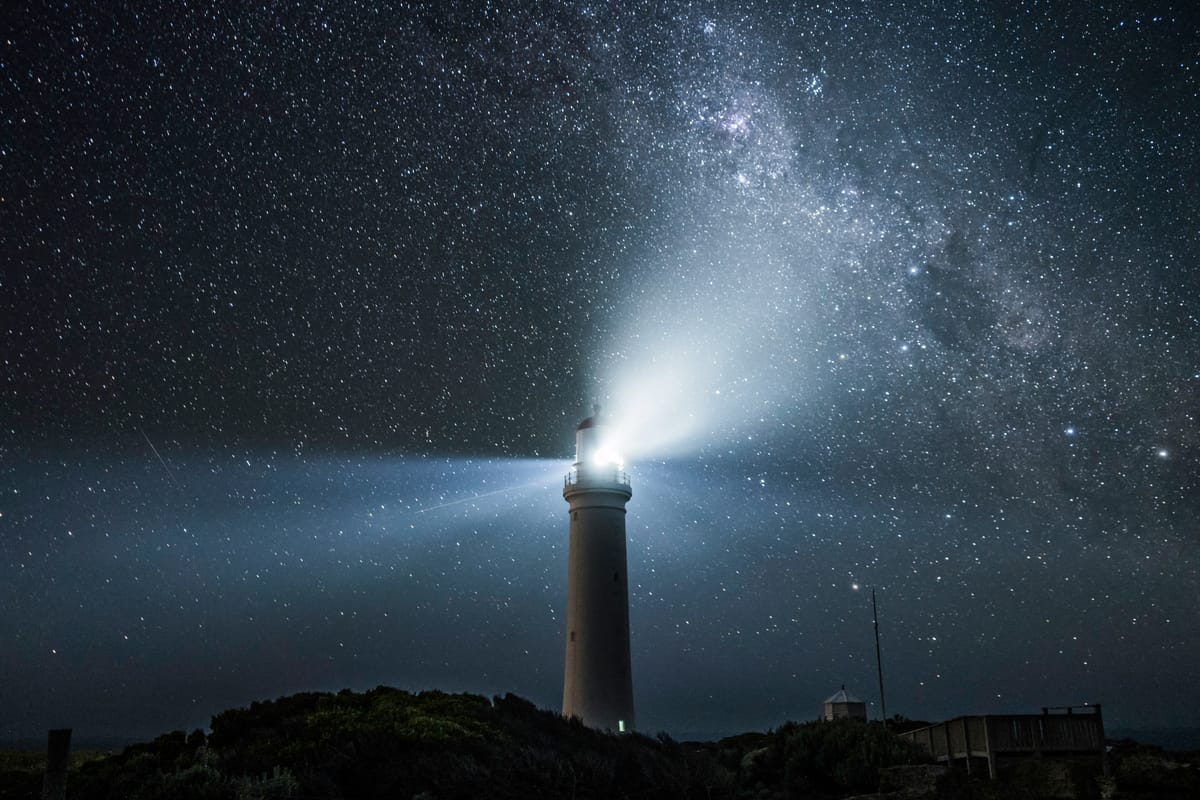
“Hope is the soft bird
We send across the sea
To see if this earth is still home.
We ask you honestly:
Is it?”
~Amanda Gorman
Last week I wrote about firefighters and the possibility that even the most profound acts of courage don’t necessarily stem from fearlessness, but rather from a deep awareness of our shared vulnerability. There are many heroic narratives that show us a version of bravery that is defined by strength and imperviousness. Superheroes' weaknesses are usually notable because they are so singular—kryptonite or an Achilles heel are their only soft spots. But most of us ordinary humans have many soft spots. Most of us are just trying to protect ourselves and our loved ones to the best of our ability, and on any given day this alone may feel like a big task. So, when the world feels desperately in need of heroes, we hover around the edges unsure of our role and anxious about putting ourselves or those we care for in harm's way.
Because of this, I find that the examples of courage that inspire me to be braver myself are usually the ones that speak softly from a place that knows fragility. These soft voices resonate differently, because most of us can relate to the feeling of speaking through a lump in our throat more easily than charging forth unafraid. As I wrote last week, I don’t think firefighters actually do their work unafraid, but it is still hard for most of us to imagine taking on this level of risk, and often that becomes a barrier that prevents us from doing anything.
However, we saw a powerful example of the kind of courage that grows from a softer, more relatable well this week, as Reverend Budde, the Episcopal bishop of the Diocese of Washington, captured viral attention for speaking gently and simply, making a plea for mercy and compassion. I think she captured our attention, at least in part, because she was so visibly human. Reverend Budde certainly holds a position of leadership, which allows her to speak to a large audience from a formidable pulpit. In this sense she is not ordinary, because her voice has uncommon reach and authority. And yet there was something inherently vulnerable about her soft words and her white robes, and I think it was that softness that made her message so impactful. Her countenance is more familiar than the firefighters’, even though they are also human and must work through their own fear and vulnerability in order to be brave. Most of us cannot imagine ourselves walking into a burning building. But I think many of us could see ourselves more easily in Reverend Budde’s gentle voice and readily apparent humanness. And, indeed, despite her position of authority and years of experience, she shared in one of her many interviews this week that she is scared every time she speaks publicly. She said,
“I’m afraid every time I step into a pulpit. That really never goes away. Large or small, it doesn’t matter. It’s a huge responsibility…and I take it seriously every time. So, yeah, I was nervous. I was scared.”
The New York Times described her words as, “an extraordinary act of public resistance from an unlikely source: a soft-spoken bishop.” I think it is that very soft-spokenness that touched us, because it offered a significant and relatable example of how we can each move with greater compassion and courage in our own lives and make a meaningful difference.
(If you’ve only seen the viral final minutes, I recommend watching the entire sermon. It is more complex and nuanced than the brief clip and challenges us all, not just the President, to be more honest, humble, and compassionate. And if you’re inspired to learn more about how Reverend Budde understands bravery, she wrote a whole book about it. Courage takes practice.)

I’ve always thought about the work that teachers do every day in the classroom as the work, not of firefighters, but of lighthouse keepers. This is often the role of the clergy as well. But, most importantly, I think it is a role we can all find ways to inhabit. Lighthouses are usually small structures set at the edge of vast dark waters. They are rarely imposing, but they are essential in their steadfast offering of light, and they provide a clear image for us to hold onto of the powerful impact that a small but consistent bright spot on the horizon can have.
None of us is capable of protecting all the boats at sea on our own, but we do each have the power to make a little segment of our rocky coast safer and to be a point of orientation for others. Teachers do this every day through the many small gestures of classroom life—modeling care as they offer tissues and tie shoes, encouraging tolerance, curiosity, and repair as they walk children through disagreements and hurt feelings, and igniting possibility and confidence by finding the exact book that will present a child with the comfort of recognition or the spark of a new idea. Each of these small gestures ripples out endlessly as children carry them forward.
Teaching is not the only way to become a lighthouse, and we don’t need the pulpit of a bishop either. We are all capable of small actions that ripple far beyond our reach.
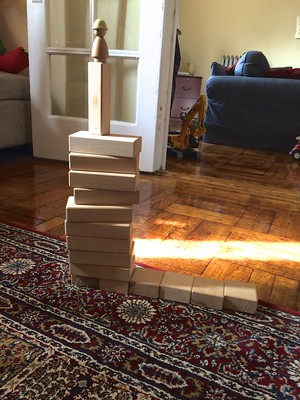
Without lighthouses, ships are more easily lost in the swells or crushed against the rocks. The lighthouse keeper may not chart the course, but their beacon allows every boat on the sea to chart its own more safely.
Lighthouse work is the most fundamental and feasible work of hope, and it is something we can all do for one another in many small, committed ways. Most of us may not have the capacity to be firefighters. But I do think we all have the capacity to be lighthouse keepers in the way that teachers are every day and in the way that Reverend Budde modeled last week—through daily actions that offer comfort, safety, or empowerment to others. The image of the lighthouse poses an important question to each of us: What small points of light can we contribute to our individual stretch of shore?
We may feel insignificant and limited in our own reach, but imagine the power of millions of small beams of light in the darkness. As ships at sea know, this is the power of stars made mortal.
As the writer and analyst Clarissa Pinkola Estés wrote in her “Letter to a Young Activist During Troubled Times,”
“In any dark time, there is a tendency to veer toward fainting over how much is wrong or unmended in the world. Do not focus on that. Do not make yourself ill with overwhelm. There is a tendency too to fall into being weakened by perseverating on what is outside your reach, by what cannot yet be. Do not focus there. That is spending the wind without raising the sails.
We are needed, that is all we can know…
Ours is not the task of fixing the entire world all at once, but of stretching out to mend the part of the world that is within our reach.
Any small, calm thing that one soul can do to help another soul, to assist some portion of this poor suffering world, will help immensely.”
Ask yourself what small thing you can do today and do it. Then ask yourself the same question tomorrow. Stretch to reach what you can reach and then stretch a little farther each day. Courage is like a muscle that becomes, not only stronger, but more flexible with use.
And when you hear others around you despairing, be gentle. We don’t lift our heads from despair by being lectured or shamed. But, do try to be a point of light instead of contributing to the howling wind. Offer small, manageable ideas or invite others to join you in your own small actions. This will shed light on a path and it will magnify your own work. When children are struggling with a task, good teachers help them find an accessible starting point, and then they help them to see what’s next as they build skills and confidence over time. We can all do this for each other. As long as we have the ability to make a positive impact on someone within our reach, none of us is truly powerless.
In her book on becoming brave, Reverend Budde described a panel discussion in which she was asked to share an example of a significant moment of change in her life. She shared a story from her own adolescence and explained in her retelling that, as she began to speak, she quickly regretted and felt embarrassed by the story she had chosen. However, it sparked others to share similar anecdotes. Ultimately, it was through an example of simple, shaky, youthful courage, not of bold leadership, that she had the most impact, because this story was so easy for others to connect with. She said,
“As soon as I started speaking, I wished that I had thought of a more grown-up example to share among such seasoned leaders. But after I finished, another panelist told a ‘deciding to go’ story from adolescence. Then another. And another. Mine was not the only wavering voice.”
We are rarely the only wavering voice. This is why hearing someone speak softly is often so transformative. We recognize our own wavering voice and trembling hands, and we are steadied and bolstered by witnessing the courage that is possible for those who are just as fragile and human as we know ourselves to be. This is the flickering yet reliable work of lighthouses.
Let’s all try to recognize those who are doing the quiet, persistent task of keeping the lighthouse flames burning, and seek out ways to become dependable points of light ourselves. All flames begin as small sparks, and all meaningful change starts with a few small steps forward toward others we can walk with.
In his poem, “Declaration of Inter-Dependence,” Richard Blanco writes,
“We hold these truths to be self-evident…
We’re the cure for hatred caused by despair. We’re the good morning of a bus driver who remembers our name, the tattooed man who gives up his seat on the subway. We’re every door held open with a smile when we look into each other’s eyes the way we behold the moon. We’re the moon. We’re the promise of one people, one breath declaring to one another: I see you. I need you. I am you.”
Wishing you points of light in the darkness and the courage to keep your own light burning for others to see,
Alicia
A few places to begin…
A reminder that the Toolkit for Avoiding Despair, which I shared in November, remains relevant.
Read banned books to kids. Buy them as birthday presents. Add them to local Little Free Libraries. Here is a list to get you started.
If you know a teen who likes to read, the New York Public Library has a Teen Banned Book Club.
Find your entry point. Here is a list of ideas for ways to take action that are not voting or protesting. Many are simple.
A Guide to Attending Library and School Board Meetings
Learn about ICE Watch Programs. (A lot of this work is being done by teens.) And find additional information from an immigration lawyer here.
Have you bought cookies yet? These kids are lighthouses. Let’s show them we see their light. And did I mention that you get cookies?!
And just for fun, listen to kids tell you how they’d change the world. They want more Oreos, more TV time, ice cream with frosting, equality for women and people of color, access to gender affirming care, and accountability to the Paris Climate Accords.
If you think someone else in your life might need some hope, please share. It’s always easier to hold onto hope when we’re not doing it alone.
